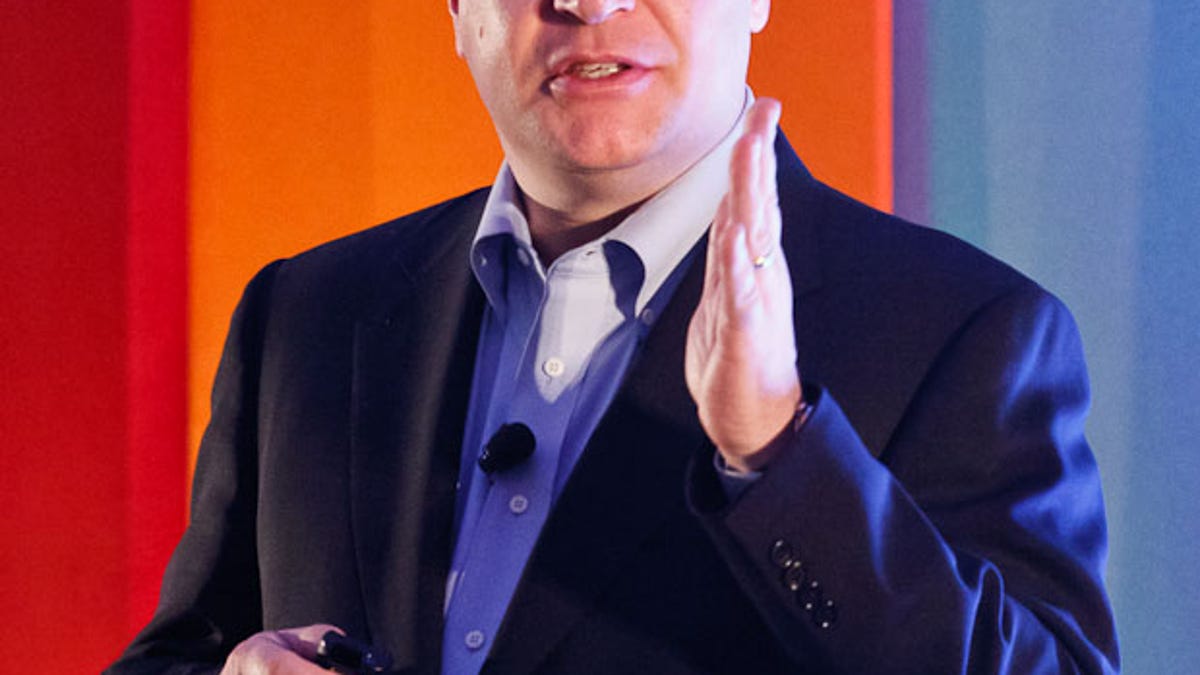CEO Elop: Nokia acquisition rumors 'baseless'
Nokia's chief shoots down rumors the phone maker will be acquired and explains how carriers are central to its plans for Windows Phone success.

LONDON--Stephen Elop, Nokia's new chief executive, today shot down rumors that business partners Microsoft or Samsung are in talks to acquire the company.
"All those rumors are baseless," he told attendees of the Open Mobile Summit here. The company isn't for sale, he indicated.
Speculation has been rife about Nokia's fate since it first ditched its own operating systems in favor of Microsoft's Windows Phone 7, then last week ditched its own financial forecasts for the year. After the Finnish company reported its mobile phone revenue had plunged, its stock price followed suit, making any acquisition more affordable.
One rumor pegged Microsoft as a potential buyer; yesterday, it was Samsung, which builds both Android and Windows Phone 7 devices and which supplies phone components to Nokia.
True or not, the rumors show the difficulties Nokia has charting its own course during the awkward phase after it's announced its dramatically new strategy but before it actually has any product to sell. While Nokia is in a sort of limbo, selling product lines it's already announced to be obsolete, Apple's iOS and Google's Android both are growing in market power.
Elop argues Nokia had no choice but to strike off in a bold new direction. The Symbian operating system wasn't competitive with Android and iOS, and Nokia's higher-end MeeGo operating system required hardware that was too expensive to be affordable in many markets. At the same time, people started buying phones for the wealth of software they could install on them, not just for whatever was built in.
"Fundamentally, our assessment of the industry is [that] it has shifted," he said. "It has shifted from a battle of devices to a war of ecosystems."
Related links
• Nokia slashes sales forecast; stock takes tumble
• Report: Nokia CTO on the outs in strategy spat
• New CEO offers scathing Nokia assessment
• Windows Phone Mango: First impressions
Nokia is moving as fast as possible to make the transition to Windows Phone 7, but won't have any products on the market until Microsoft's "Mango" update to the operating system later this year. Consequently, Elop's speech rehashed old material: the justification for the move to Windows Phone 7 and the strategy for making the change successful.
Competitors are gleeful about Nokia's difficulties. Christy Wyatt, a corporate vice president at Android power Motorola, took a potshot in comments after Elop's speech: "His slides could have been my slides three years ago."
Elop insisted there's cutting-edge work going on at Nokia, though he declined to show the phone in his pocket. He just saw fruits of research at Nokia's San Diego facilities."If I can just get that to market faster and more competitively, we can do very well," he said.
Richard Windsor of Nomura Securities, another speaker at the conference, is pessimistic about Nokia's fortunes, saying the company has faltered with the sudden arrival of competition in areas where it previously had little: high-end and low-end phones.
A midtier Windows Phone model from Nokia won't emerge for a year, though, he said. "We're still extremely cautious on Nokia's outlook for the next year...It may get worse before it gets better," Windsor said. With Windows Phone, there's a third ecosystem coming, he said, but if it doesn't arrive soon enough, there may just be two ecosystems that survive.
Elop described several elements of Nokia's strategy:
• Nokia will curry favor with mobile phone carriers that don't always get along with Apple and Google. "Apple has a certain relationship with operators," Elop said, drawing laughs from the audience. "Google is feared by many operators because of the economic power and the way the money flows. Our commitment is to be more friendly than any of the others," for example by supporting operator billing under which the phone network companies get a slice of the revenue from app purchases.
• The phones have to be good. "We must delight the consumers. We must be second to none," Elop said. With photography, optics, haptics, location-based services, and other technology, "We have the assets to make that possible, as does Microsoft...You will see waves of families of [Nokia] devices that take advantage of Windows Phone."
• "We have to complete the ecosystem," he said, reaching markets that require special changes. That includes localization to support many languages and specific hardware needed for specific markets such as dual-SIM phones that can connect to multiple carriers' markets. Another phone costing just 35 euros comes with a very powerful speaker, and it sells well in India and China where people want their music to be heard in crowded markets.
• Nokia will attract developers. It has 60 million active programmers today, many in growing markets such as Brazil, China, and Russia. "We have work to do in North Ameria, but there's a much larger world out there," he said. Windows Phone 7 is now the third platform programmers support after iOS and Android, with 20,000 apps and counting. "The momentum is building," he said.
"Windows Phone 7 is the third ecosystem," Elop said--though he gets in trouble sometimes with Nokia marketing staff for that unflattering description. "I'm using the word 'third.' The marketing people say, 'Don't say that!' Come on. That's the reality."
Elop was also blunt in his "burning platform" memo detailing Nokia's plight. But Elop believes Nokia can change.
The company is 146 years old, and in the early 1990s was known for selling tires, cables, and toilet paper. The ability to respond in times of disruptive change is something "the company fundamentally has in its DNA."
Updated 3:38 a.m. PT and 4:16 a.m. PT with further details.

